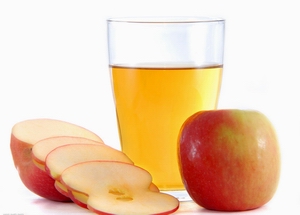Fruit Juice A ustralia (FJA), representing over 90% of the nation’s juice production volume, has responded to recent media coverage of the sugar content of apple juice.
ustralia (FJA), representing over 90% of the nation’s juice production volume, has responded to recent media coverage of the sugar content of apple juice.
Earlier this week, Fairfax Media reported that a bottle of Coles’ Finest Australian cloudy apple juice contains more kilojoules and carbohydrates than a bottle of Coca-Cola, based on an average of 100ml. The Fairfax report also said that Berri’s The Daily Juice Company apple juice contained more kilojoules than a soft drink, but slightly less carbohydrates and sugar.
“The continued demonization of juice based on its sugar content is disappointing and sending a wrong message to people about the role of juice in the diet. This is especially so for parents” said the FJA CEO, Mr Geoff Parker.
“The sugar found in 100% fruit juice, whether that’s apple, orange or any other type of blend, is 100% naturally occurring in the originating fruit and is not added to the juice. In addition to containing the same sugars as in the fruit, juice contains all of the healthy nutrients as well, with the exception of fibre,” Parker said.
“The Australian Dietary Guidelines supports that a small glass of juice (125mL) is equivalent to a serve of fruit. This is important for parents to know and while fruit is always recommended for kids, having a small glass of juice can help fussy eaters meet their fruit serves. Without juice, 99% of Australian children aged 14-16 and 50% of 9-13 year olds do not get the recommended daily serves of fruit,” he added.
The earlier Fairfax reported quoted a leading nutritionist Dr Rosemary Stanton as saying that if one “removed the fibre from the apple juice, it became little more than sugar syrup” and that “consumers were eating up to five large apples within one bottle of juice, which exposed them to far too much sugar”.
Mr Parker said that having a small glass of juice each day can be an important part of a balanced diet and healthy lifestyle.
 ustralia (FJA), representing over 90% of the nation’s juice production volume, has responded to recent media coverage of the sugar content of apple juice.
ustralia (FJA), representing over 90% of the nation’s juice production volume, has responded to recent media coverage of the sugar content of apple juice.Earlier this week, Fairfax Media reported that a bottle of Coles’ Finest Australian cloudy apple juice contains more kilojoules and carbohydrates than a bottle of Coca-Cola, based on an average of 100ml. The Fairfax report also said that Berri’s The Daily Juice Company apple juice contained more kilojoules than a soft drink, but slightly less carbohydrates and sugar.
“The continued demonization of juice based on its sugar content is disappointing and sending a wrong message to people about the role of juice in the diet. This is especially so for parents” said the FJA CEO, Mr Geoff Parker.
“The sugar found in 100% fruit juice, whether that’s apple, orange or any other type of blend, is 100% naturally occurring in the originating fruit and is not added to the juice. In addition to containing the same sugars as in the fruit, juice contains all of the healthy nutrients as well, with the exception of fibre,” Parker said.
“The Australian Dietary Guidelines supports that a small glass of juice (125mL) is equivalent to a serve of fruit. This is important for parents to know and while fruit is always recommended for kids, having a small glass of juice can help fussy eaters meet their fruit serves. Without juice, 99% of Australian children aged 14-16 and 50% of 9-13 year olds do not get the recommended daily serves of fruit,” he added.
The earlier Fairfax reported quoted a leading nutritionist Dr Rosemary Stanton as saying that if one “removed the fibre from the apple juice, it became little more than sugar syrup” and that “consumers were eating up to five large apples within one bottle of juice, which exposed them to far too much sugar”.
Mr Parker said that having a small glass of juice each day can be an important part of a balanced diet and healthy lifestyle.





